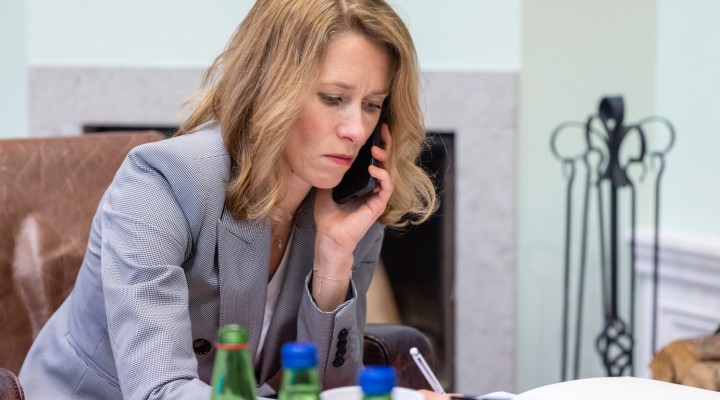According to Prime Minister Kallas Denmark is one of Estonia’s closest friends and allies. “The Danes understand how important it is that NATO increases its defence and deterrence posture of the eastern flank,” she explained. “We very much appreciate their decision to boost security of the Baltic Sea by deploying a frigate with 160 soldiers and to contribute even more to Baltic Air Policing with a further four F-16 fighter jets. We are also grateful that Danish soldiers are part of the NATO battlegroup in Tapa.”
The Estonian head of government marked that the past week has been one of intense diplomatic communication. A number of meetings have been held with Russia, but this dialogue must take place in parallel with the reinforcement of NATO security and the preservation of its underlying principles. “The alliance has made those positions very clear to Russia,” Prime Minister Kallas said. “Now it is up to Russia to show whether they are willing to pursue further diplomacy.”
Prime Minister Kallas says that there are currently no signs of any curtailing of military activity on Russia’s part towards Ukraine. “Russian forces continue to mass on Ukraine’s borders and both the war in Eastern Ukraine and the occupation of Crimea are ongoing,” she stated. “Moreover, today came news of cyberattacks being waged against the country. We condemn all acts of aggression against Ukraine, including virtual ones, in the strongest terms. Unfortunately, the situation at present indicates that we must be prepared for Russian aggression to be ramped up further. As such, the undivided support of the West is of the utmost importance to Ukraine. Estonia, like other countries, is looking for ways to provide more practical assistance to the country in addition to lending it political support.”
Also discussed during the telephone call were matters related to NATO’s Multinational Division North, of which Estonia, Denmark and Latvia are the framework countries. “The division unites the region’s forces with the Alliance’s highest Command Structure, and we agreed that developing it is important in order to boost the defence capabilities of our region,” Prime Minister Kallas explained.
